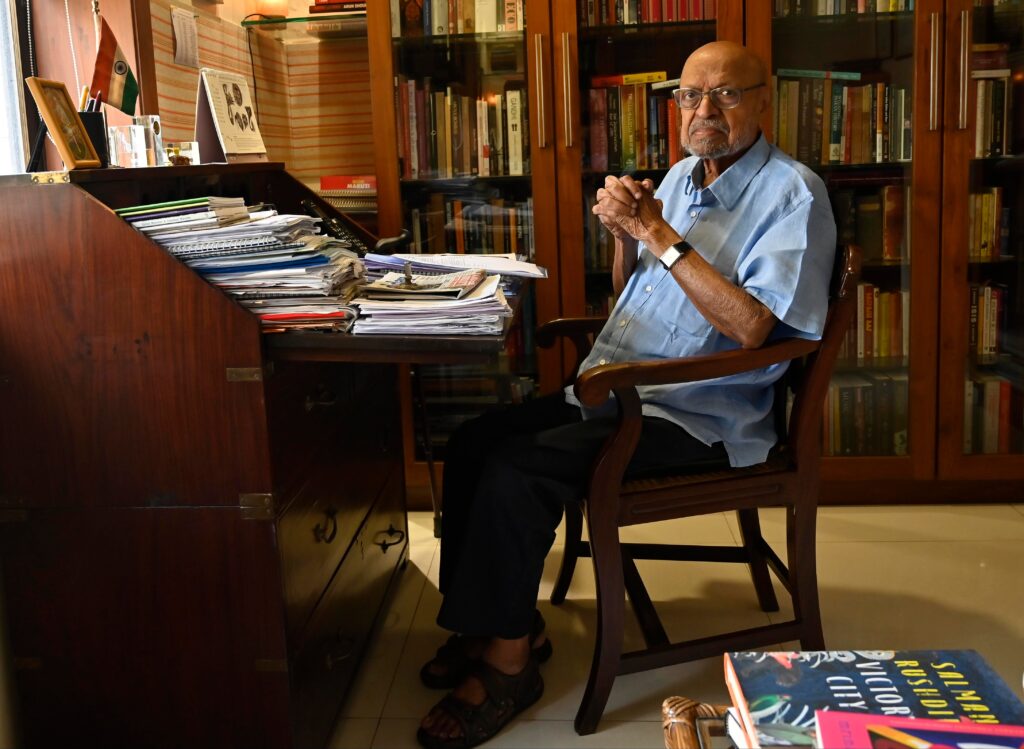Dec 24, 2024 03:03 PM IST
Filmmaker Shyam Benegal spoke to HT City recently on a lot of raging debates. Here’s what he told us.
Filmmaker Shyam Benegal’s death has left a huge void in the Indian film industry. Considered a pioneer of parallel films, his films were acclaimed worldwide, and Manthan was more recently screened at the prestigious Cannes film festival.

HT City had spoken to the auteur some time back this year, on the occasion of Teacher’s Day. Here are some excerpts from the last chat with Benegal:
Also read: Shyam Benegal dies: PM Narendra Modi, President Droupadi Murmu pay tribute to giant of Indian cinema
You have been a teacher to many via your filmography, but who has been your teacher in life?
Life itself. But as far as cinema is concerned – there have been many influences on me. If you force me to take one name, I would say – Satyajit Ray.
What’s that one thing students of cinema forget when they get caught up in the glitz and glamour of the film industry?
Every young man must remember that if he is playing tennis then his eyes have to be on the ball and not at the score board. Glitz and glamour will automatically follow when you have made a good, meaningful and entertaining film.
People over the last few years have spoken about how it’s the Indian film industry now, no more distinctions on the basis of language, south or Hindi. There was a debate recently about whether Bollywood films show India in a negative light. Do you agree?
Satyajit Ray made films in Bangla as well as in Hindi. So did Mrinal Sen, and Girish Kasarawali, and myself. I come from South Karnataka, grew up in Hyderabad, lived and worked in Bombay, and my films have been in Hindi, Urdu, Deccani and Telugu. So let’s stop using the narrative of South v/s North etc. We all represent the cinemas of India.
This year has seen the Hema Committee report reveal that Malayalam film industries have a group which has a lot of power and casting couch exists. Actresses from all film industries are reacting to this. You have seen the Indian film industry go through various changes. What do you make of the perception that films are being looked at as an unsafe place of work for women?
Why single out only the film industry? The man in Kolkata’s PG Kar medical college was not from films. The women in India are a vulnerable group despite they being 50 percent of the population. And we all are responsible. How we have lived with patriarchy, and how we have taught our boys is perhaps the reason. I am sure you have seen my films and seen the way I have portrayed the women with dignity and respect, even when they come from the most exploited classes and communities. I must say that a society that cannot respect women, and give them equal status is premature and not fully developed.













